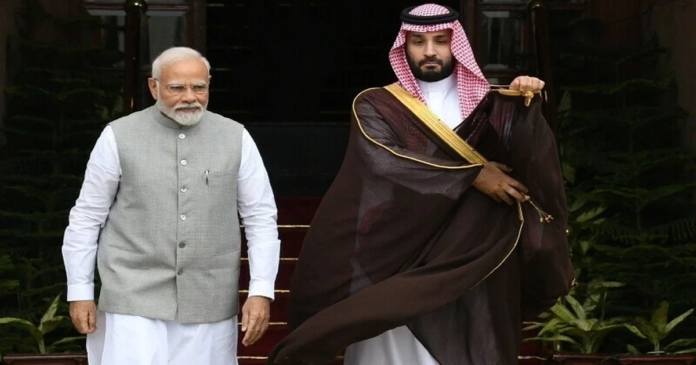Monday marked days after India unveiled a significant commerce and transit corridor connecting Europe, the Middle East, and India as part of a broad alliance. India praised its “strategic” connection with oil-rich Saudi Arabia.
Modi Hails Saudi Ties: In New Delhi, Indian Prime Minister Narendra Modi addressed Saudi Arabia’s de facto ruler Crown Prince Mohammed bin Salman, “Together, we made the historic start to establish an economic corridor.”
The two participated in the unveiling of ambitious plans to establish a modern-day Spice Route on Saturday together with other G20 leaders, strengthening trade links with potentially broad geopolitical ramifications.
“This corridor will not only connect the two countries, but economic cooperation, digital connectivity between Asia, West Asia, and Europe,” Modi said in remarks made after the conclusion of the two-day summit of the leaders of the Group of 20 that he hosted.
India and Saudi Arabia initiated the proposal to integrate trains, ports, electricity and data networks, as well as hydrogen pipelines, with the involvement of the United States, the European Union, and other countries.
The plan, primarily centered on trade, could have extensive implications, including the potential for fostering relations between longtime rivals Israel and Saudi Arabia.
An Israeli official told AFP that an Israeli group was in Riyadh on Monday for a UNESCO meeting. This was Israel’s first officially disclose trip to Saudi Arabia.
Israel has never been formally recognised by Saudi Arabia.
US Vice President Joe Biden referred to the trade and transport plan as “historic” during its launch.
The so-called India-Middle East-Europe economic corridor, according to European Commission President Ursula von der Leyen, is “much more than ‘just’ a railway or a cable.”
The agreement’s signatories expect it will help integrate India’s enormous market of 1.4 billion people with western nations, provide a check on China’s extravagant infrastructure spending, stimulate the economies of the Middle East, and normalise relations between Israel and Gulf Arab governments.
It was another move towards tighter ties between New Delhi, the most populous nation on earth, and Riyadh, the largest exporter of crude oil in the world; according to Saudi Arabia’s investment ministry, bilateral commerce between the two countries already reached $42.8 billion in 2017.
Modi, in a video displayed on official media, continued, “Our mutual cooperation is crucial for the peace and stability of the entire region, as we are two of the world’s fastest-growing economies.”
Saudi Arabia is one of India’s most crucial strategic allies, he remarked.
Without providing more information, Arindam Bagchi, a spokeswoman for the Indian foreign ministry, said the leaders talked about subjects like energy security, commerce, investment, and defence.

